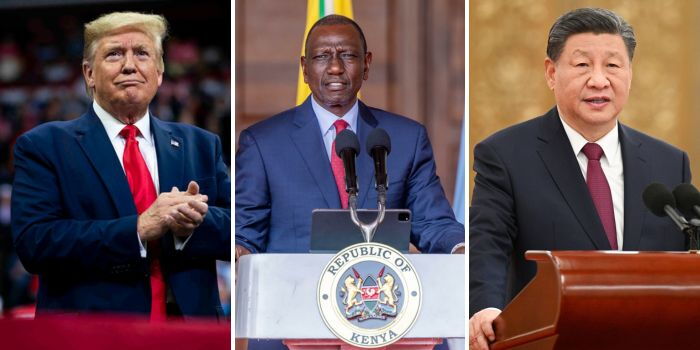US Senator Warns of Chinese Influence in Africa After Trump Shuts Down USAID
Weeks after US President Donald Trump signed an executive order suspending foreign aid for 90 days, reports have now confirmed that his administration is planning to shut down the US Agency for International Development (USAID) entirely.
This decision has sparked growing concerns that China could take advantage of the situation to strengthen its influence in Africa.
The suspension of aid has already led to job losses for hundreds of Kenyans, with more at risk of being laid off. USAID, which has been instrumental in funding various development projects in Kenya and other African countries, is now at the center of a major political debate in Washington.
Tech billionaire Elon Musk, who has been vocal about government spending, confirmed plans to eliminate the agency.
“We’re shutting it down,” Musk stated during an X Spaces discussion. He added, “Spent the weekend feeding USAID into the wood chipper.”
The decision has raised alarms among US lawmakers and foreign policy experts, who fear that China will step in to fill the gap left by USAID’s exit. One of the leaders voicing concern is New Jersey Senator Andy Kim, who warned that the move could significantly weaken America’s global leadership.
“Trump’s actions are undermining American influence worldwide,” Kim told Bloomberg on Monday, February 3. “Our assistance abroad is crucial for fighting disease, preventing famine, and stabilizing fragile regions. It also helps counter the growing influence of authoritarian regimes like China, Russia, and Iran.”
Chinese officials have also reacted to the US withdrawal from foreign aid, with one calling it an act of “self-sabotage.” The official noted that by pulling back from international assistance, the US risks losing potential allies and giving China more room to expand its reach.
China has long been working to increase its presence in Africa. In 2018, Beijing established a dedicated foreign aid agency, strengthening its role as a key partner for developing nations. Currently, China is Kenya’s largest multilateral lender, holding over Ksh1 trillion of Kenya’s Ksh10 trillion national debt.
Even before USAID’s suspension, China had been actively positioning itself as a leader in the Global South. At the 2023 Group of 20 (G20) summit in Brazil, Beijing announced new initiatives aimed at deepening ties with developing nations. These efforts focused on improving technological connectivity, enhancing food security, and tackling climate change—key areas where China seeks to build stronger relationships.
Trump’s decision to halt humanitarian aid has already had significant consequences in Kenya. Kisii County was forced to send over 500 workers on unpaid leave, while Kisumu and Homa Bay counties had to suspend projects that depended on USAID funding.
The impact has also been felt in institutions like the University of Nairobi (UoN), where an undisclosed number of Kenyan employees working under USAID-funded programs have been placed on unpaid leave. Many are now at risk of losing their jobs permanently.
As uncertainty looms over the future of US foreign aid, Africa may see a shift in global partnerships, with China likely to strengthen its foothold in the region.
Join Gen z and millennials TaskForce official 2025 WhatsApp Channel To Stay Updated On time the ongoing situation https://whatsapp.com/channel/0029VaWT5gSGufImU8R0DO30


